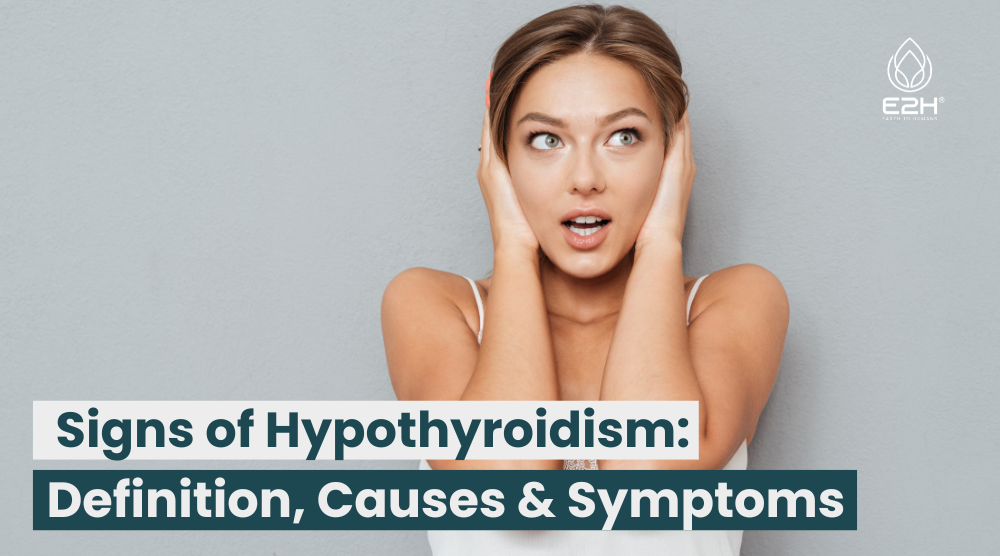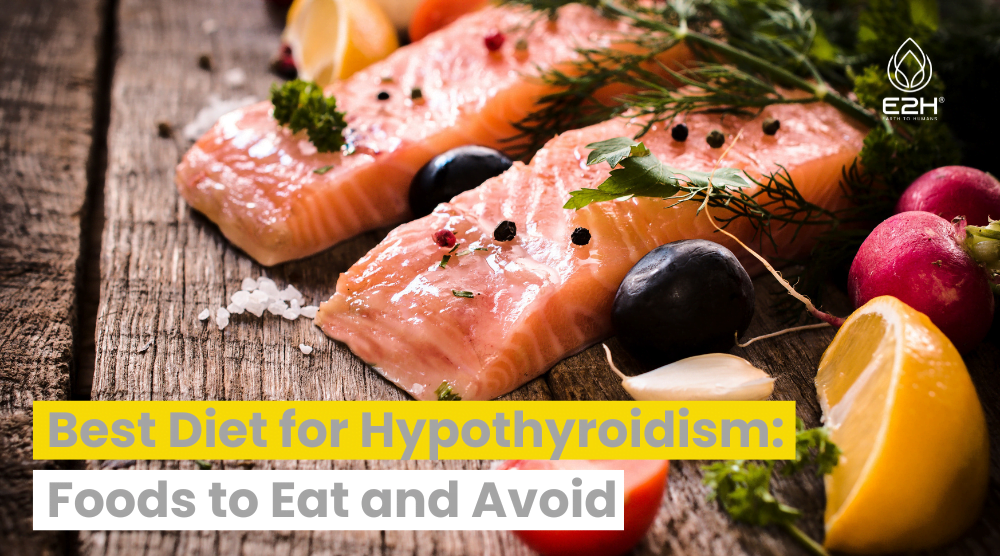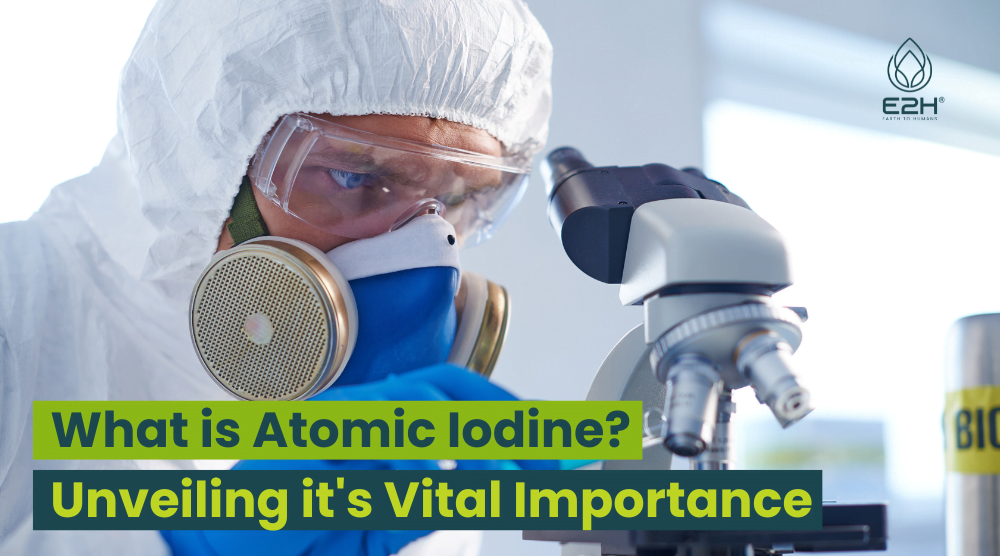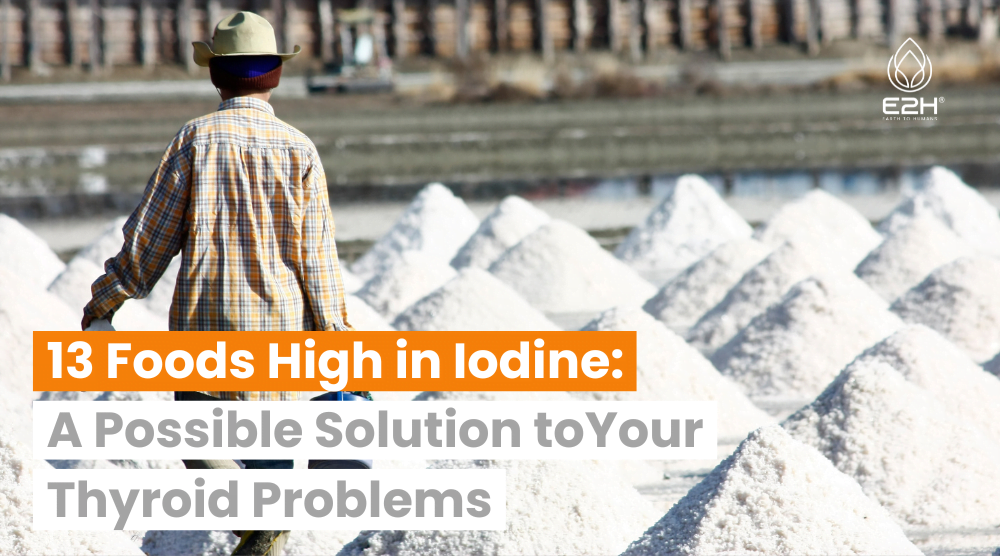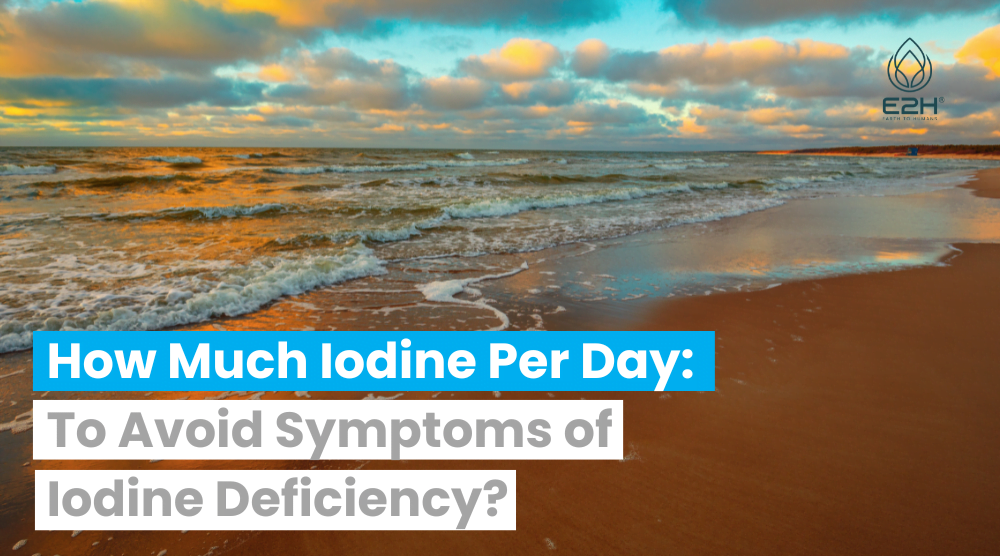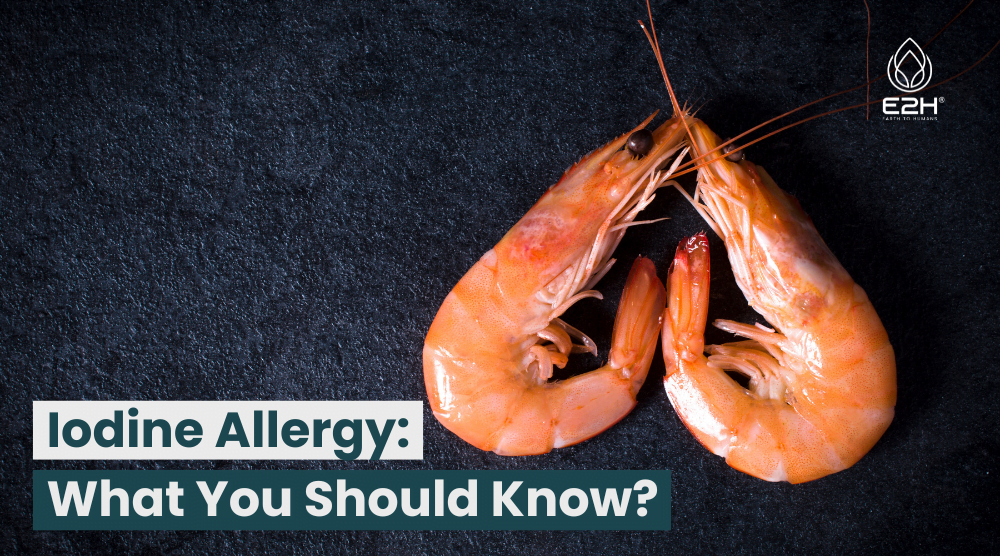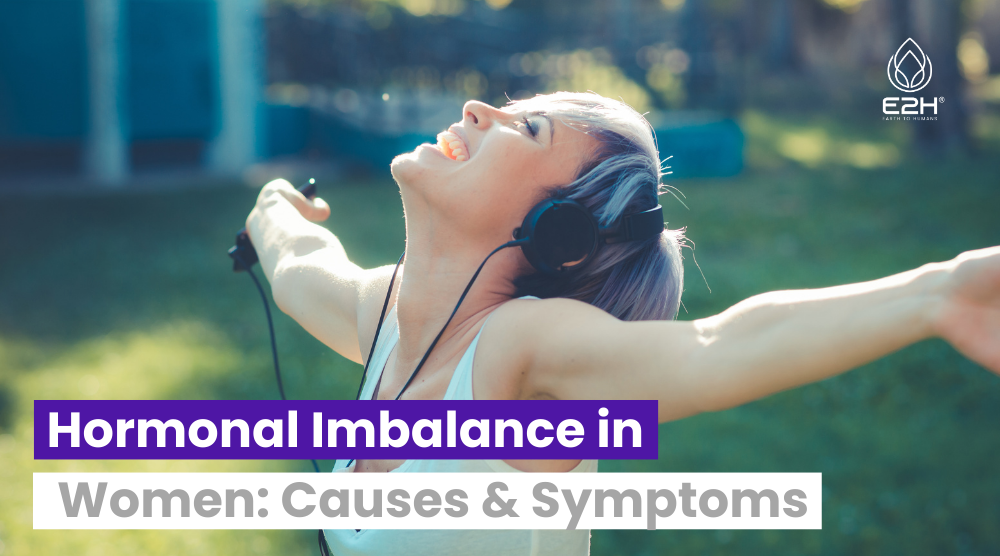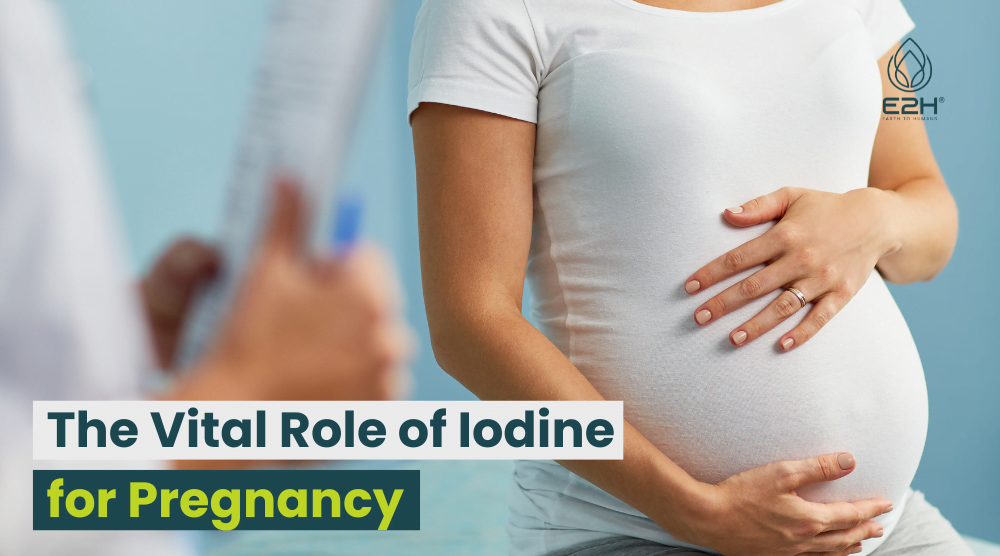Hypothyroidism refers to an underactive thyroid gland. Common signs include fatigue, weight gain, dry skin, hair loss, muscle weakness, depression, constipation, sensitivity to cold, and menstrual irregularities. It can be caused by autoimmune disorders, iodine deficiency, certain medications, or other factors.
What is Hypothyroidism?
The thyroid gland, under the influence of the pituitary gland, produces thyroid (thyroxine) hormone, which plays a key role in mental and sexual maturation. The pituitary gland controls TSH (Thyroid Stimulating Hormone) secretion, which prompts the thyroid gland to secrete T3 and T4 factors, collectively called thyroid hormone.

Low levels of thyroid hormones categorize hypothyroidism. It is a hormonal condition in which less thyroid hormone is produced due to the abnormality of TSH or the thyroid gland. Congenital hypothyroidism [1] is an autoimmune disorder that arises due to problematic genetic factors affecting the thyroid gland. But in some situations, external factors such as stress and diet can also trigger hypothyroidism.
How Does Thyroid Work?
In case of high thyroid levels, less TSH (Thyroid Hormone Secretion) is secreted by the pituitary gland. Similarly, when thyroid hormone is deficient in blood, more TSH is released to stimulate thyroid production. Therefore, it can be said that TSH and thyroid hormones work oppositely. However, in some situations, even increased TSH levels fail to stimulate the thyroid gland to produce enough thyroid hormone.
This condition is called underactive thyroid disease or primary hypothyroidism. Primary hypothyroidism is caused by an underactive thyroid gland, whose activity is inhibited by genetic or environmental factors. But suppose the problem resides in TSH production, and its low levels fail to stimulate the thyroid gland for thyroid hormone production. In that case, such a condition is called secondary hypothyroidism.
What’s the Difference Between Hypo and Hyperthyroidism?
Hypothyroidism is caused by an underactive thyroid gland or low levels of TSH, resulting in low levels of thyroid hormones. In hypothyroidism, too little hormone is secreted, which fails to meet the body’s normal requirements. A person may have hyperthyroidism if too much thyroid hormone is produced in the body due to increased TSH levels or an overactive thyroid gland.
Hyperthyroidism upsets normal body functioning by secreting more thyroid hormones than the body’s requirement. Hypothyroidism and hyperthyroidism are both thyroid diseases possessing distinct symptoms. The thyroid hormone is a primary endocrine hormone involved in developmental procedures. Therefore, its increase or decrease can immensely affect the body’s functioning.
Causes of Hypothyroidism
Hypothyroidism is primarily associated with genetic factors upsetting normal thyroid hormone production. Below are a few main causes that can lead to decreased TSH levels or an underactive gland and can potentially cause hypothyroidism.
Hashimoto’s Disease
Hashimoto’s disorder, or Hashimoto’s thyroiditis, is an autoimmune disease in which genetic factors disrupt the immune system and prompt it to attack the gland [2]. Hashimoto’s thyroiditis is a hereditary disorder and passes subsequently to the generations as an autoimmune disorder.
In this condition, the immune system produces antibodies that destroy the cells, thus, reducing their number and inhibiting their secretary effect. Since it is one of the autoimmune thyroid disorders that causes gland inflammation, it is also called autoimmune thyroiditis [3].
Congenital Hypothyroidism
Congenital Hypothyroidism (CHT) results when the gland is either absent or fails to produce enough thyroid hormone levels. In congenital hyperthyroidism, less thyroid hormone is produced, which does not meet the normal requirements and affects developmental procedures. People with a family history of thyroid diseases are more prone to congenital hypothyroidism than a person with no familial record of thyroid problems.

Effects of Birth Control Pills on Thyroid Gland
Long-term birth control pills have often been medically associated with an underactive thyroid. However, congenital or autoimmune responses do not trigger hypothyroidism. Still, it develops later due to increased estrogen and progesterone hormone levels.
When a person takes birth control pills regularly, the estrogen and progesterone within them start affecting the thyroid-binding proteins. As a result, the thyroid hormone levels fall, and the individual develops hypothyroidism. However, as soon as the intake of birth control pills is stopped, the thyroid hormone levels get restored to their original concentration.
However, if a female with hypothyroidism regularly consumes birth control pills, this practice worsens her hypothyroidism. As a result, severe hypothyroidism can occur, which can sometimes be life-threatening and even hamper brain and nervous system functions.
Symptoms and Signs of Hypothyroidism
Fatigue
One of the earliest signs of hypothyroidism is persistent tiredness and fatigue. This is because the thyroid hormone heavily influences basal metabolic rate. Therefore, when thyroid hormone levels fall short in the body, metabolism collapses, and the patient experiences low energy levels.
About 50% of hypothyroidism patients report fatigue as the primary consequence of low thyroid levels. Whereas 42% of such patients claim their sleeping patterns have extended, and they feel unrested even after eight hours of healthy sleep.
Weight gain
The liver and muscles start holding onto fats for calories when thyroid levels drop. Moreover, the metabolic rate also suffers a breakdown during hypothyroidism. As a result, excess fat builds up in the body, gradually leading to weight gain.
Weight gain [4] is not just a hypothyroidism symptom but is also a contributor to the disease. It has been medically proven that obese people are more likely to suffer from severe hypothyroidism than those with a normal BMI (Body Mass Index).
Low body temperature
Body heat is produced when calories are burnt. Thus, fewer calories are burnt when your body’s metabolism is slow. In such situations, little to no heat is produced within the body. As a result, the body temperature drops, and the patient may feel colder than usual.
Muscle Ache
Hypothyroidism triggers catabolism in the body, due to which muscles break down to provide maximum energy. Due to persistent catabolism, muscle protein degenerates, and the person experiences more cramps than ever.
However, with the help of synthetic thyroid hormones like levothyroxine, excessive catabolism in the body can be diminished, and symptoms of hypothyroidism can be avoided.
Hair loss
Hair follicles are regulated by thyroid cells, and sudden hair loss can occur in hypothyroidism. Hair follicles are grown by stem cells which have a shorter lifespan than most cells. Hypothyroidism can damage the hair follicles and stop their regeneration. Thus, no new hair follicles are produced, resulting in hair loss.
Dry skin
Hypothyroidism can also affect the turnover period of skin cells. Usually, skin cells have a rapid turnover, meaning their regeneration period is short and fast. But hypothyroidism delays the regeneration period and slows skin cell turnover. Therefore, skin cells are not replaced as fast as they should, resulting in dry, moisture-less, and itchy skin.
Concentration issues
Another symptom of hypothyroidism is that patients can find it difficult to focus on certain aspects of life. About 36% of hypothyroidism patients have reported that they experience fogginess in their routine tasks and work slower than usual.
Constipation
Constipation is one of the other symptoms of hypothyroidism. Still, thyroid disorder cannot be confirmed solely based on this symptom. However, about 20% of hypothyroidism patients have reported frequent constipation, implying that it can be one of the underlying consequences of hypothyroidism.
Irregular Periods
The thyroid hormone also affects estrogen and progesterone hormone levels, which regulate the menstrual cycle. In the case of hypothyroidism, low thyroid levels can affect the menstrual cycle. Therefore, hypothyroidism patients often experience irregular or heavy periods, implying hormonal imbalance.
Symptoms of hypothyroidism in adults
People who develop hypothyroidism in adult life face fertility issues. According to American Thyroid Association, women are more likely to develop hypothyroidism in adult life than men. As a result, females with this condition may experience irregular periods, and their pregnancy can be relatively more challenging.
Symptoms of hypothyroidism in Children
If hypothyroidism arises at a young age, the condition is mainly referred to as congenital. The thyroid hormone’s role is crucial in the developmental years before puberty. Therefore, its effects are more severe for children than adults. Young people with hypothyroidism may have delayed growth, mental retardation, constipation, and also experience sleep issues.
Severe hypothyroidism
Ignoring the early signs of low thyroid levels can worsen hypothyroidism. Untreated hypothyroidism can lead to severe symptoms affecting a person’s normal growth and development.
Patients with severe hypothyroidism usually have swollen hands, anemia, kidney diseases, and can even experience loss of hearing. If the condition is prolonged, the person may develop a myxedema coma, a life-threatening ailment.
Is Hypothyroidism During Pregnancy a Problem?
Hypothyroidism females may develop Hashimoto’s disease during pregnancy, implying that pregnancy worsens low thyroid levels. The immune system works against the thyroid cells and diminishes their effect on the body. As a result, normal body functions are hampered.

If not properly taken care of, hypothyroidism can even affect the development of the fetus [5]. Patients may feel extremely cold, have frequent cramps, and feel tired most of the day. Since thyroid hormone is essential for the womb’s growth, it must be supplied via synthetic thyroid hormone injections.
Diagnosis of Hypothyroidism
To diagnose hypothyroidism, one should look for the above symptoms in the patient. In addition, analyzing the family history of thyroid diseases may also help in hypothyroidism diagnosis. Still, hypothyroidism can only be confirmed by blood tests, which monitor thyroid levels in the body. TSH blood test is the golden test for the early diagnosis of hypothyroidism.
How do Doctors Treat Hypothyroidism?
The early diagnosis and management of sub-acute hypothyroidism can subsidize the disease. But chronic hypothyroidism is presently incurable. However, some medications can still help manage thyroid disorders.
Lifestyle Modifications
Hypothyroidism patients must maintain a healthy balanced life to control the effects of the thyroid disorder. Regular exercise, a balanced diet, and proper medication can help maintain thyroid levels and reduce hypothyroidism symptoms.
Medical Treatment
Advanced medical treatments like radioactive iodine treatment and thyroid hormone replacement can be opted to maintain healthy thyroid levels. Moreover, prescription drugs can also play a crucial role in uplifting low thyroxine levels.
Surgical Removal
Long-term hypothyroidism leads to enlargement in the gland size, which requires thyroid surgery to remove the excess tissue. However, A person may experience severe hypothyroidism due to extremely low thyroid levels if the gland is removed owing to some chronic disease. In such situations, patients must take life-long medications to maintain thyroxine levels in the blood.
Complications of Hypothyroidism
If hypothyroidism is immediately looked at after the early signs appear, it becomes more manageable and easier to handle. However, in the case of untreated hypothyroidism, severe symptoms may arise, which may even lead to anemia and deafness. That is why on-time treatment of hypothyroidism is crucial to avoid the harsh consequences
Can Hypothyroidism Cause Cancer?
An overactive or underactive gland does not increase your risk of developing thyroid cancer [6]. However, a chronic condition of hypothyroidism can trigger anemia in patients.
What is hypothyroidism, and how does it differ from hyperthyroidism?
Hypothyroidism is an underactive thyroid gland, leading to decreased production of thyroid hormones. In contrast, hyperthyroidism is an overactive thyroid gland, resulting in excessive thyroid hormone production.
What are the common causes of hypothyroidism?
Hypothyroidism can be caused by autoimmune disorders (such as Hashimoto’s thyroiditis), iodine deficiency, certain medications (like lithium), radiation therapy, congenital factors, or pituitary gland issues.
What are the typical symptoms of hypothyroidism?
Common symptoms include fatigue, weight gain, dry skin, hair loss, muscle weakness, depression, constipation, sensitivity to cold, and menstrual irregularities. However, symptoms can vary among individuals.
How is hypothyroidism diagnosed and treated?
Diagnosis involves a combination of medical history evaluation, physical examination, blood tests to measure thyroid hormone levels, and sometimes imaging tests. Treatment usually involves synthetic thyroid hormone replacement therapy to normalize hormone levels and manage symptoms effectively. Regular monitoring is necessary to adjust the medication dosage if needed.
The Bottom Line
Hypothyroidism occurs due to low T3 and T4 levels in the blood. In case of over-secretion, the condition will be regarded as hyperthyroidism. Low thyroid levels disturb a person’s basal metabolic rate, development, and growth. In most cases, hypothyroidism occurs due to an autoimmune or congenital disorder. However, external factors and surgical removal of the gland can trigger hypothyroidism in some situations.
The symptoms of hypothyroidism in young people are more concerning than in adults, as low thyroxine levels can hamper an individual’s normal development and sexual maturation. Therefore, early diagnosis of hypothyroidism is crucial for effective disease management, as it can help the patient avoid chronic symptoms like deafness, mental retardation, and anemia.
References
Hypothyroidism (Underactive Thyroid) | NIDDK [Internet]. National Institute of Diabetes and Digestive and Kidney Diseases. Available from: https://www.niddk.nih.gov/health-information/endocrine-diseases/hypothyroidism?dk rd=hispt0299
Patil N, Rehman A, Jialal I. Hypothyroidism [Internet]. PubMed. Treasure Island (FL): StatPearls Publishing; 2020. Available from: https://www.ncbi.nlm.nih.gov/books/NBK519536/
Tabassom A, Edens MA. De Quervain Thyroiditis [Internet]. PubMed. Treasure Island (FL): StatPearls Publishing; 2020. Available from: https://www.ncbi.nlm.nih.gov/books/NBK526066/
Sanyal D, Raychaudhuri M. Hypothyroidism and obesity: An intriguing link. Indian Journal of Endocrinology and Metabolism [Internet]. 2016;20(4):554. Available from: https://www.ncbi.nlm.nih.gov/pmc/articles/PMC4911848/
National Institute of Diabetes and Digestive and Kidney Diseases. Hypothyroidism (Underactive Thyroid) | NIDDK [Internet]. National Institute of Diabetes and Digestive and Kidney Diseases. 2019. Available from: https://www.niddk.nih.gov/health-information/endocrine-diseases/hypothyroidism
Tests For Thyroid Cancer [Internet]. Cancer.org. American Cancer Society; 2015. Available from: https://www.cancer.org/cancer/thyroid-cancer/detection-diagnosis-staging/how-diagno sed.html
